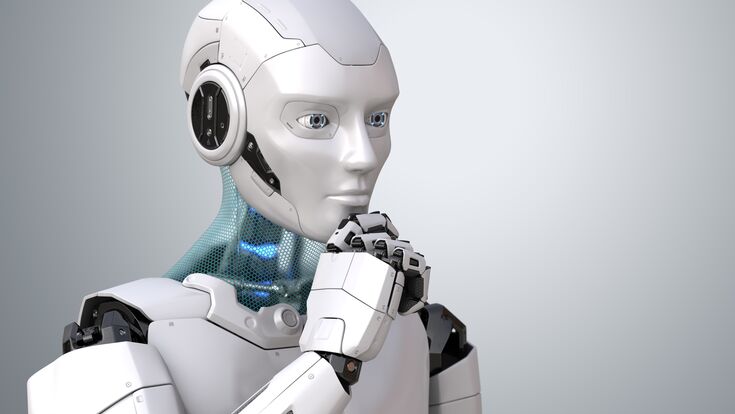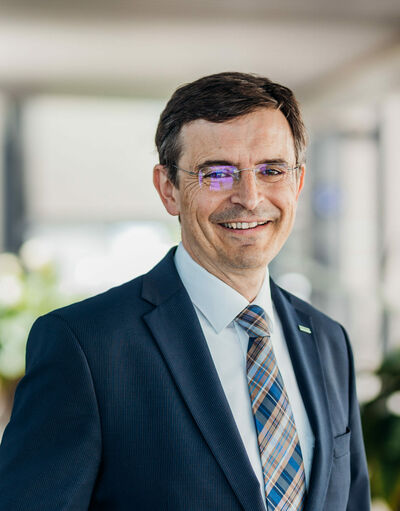Business Talk AI : Let's talk about Artificial Intelligence for recycling with Brantner

What are the current challenges in developing recycling technology?
We have successfully developed our in-house artificial intelligence, Branter AI, in recent years. We have also succeeded in putting it to use in a wide variety of application areas. We use Brantner AI internally, but partner companies also make use of it. We are therefore optimistic about the future, even if we currently must deal with supply bottlenecks in the robot sector and longer chip waiting times.
How important is digitization and artificial intelligence in the recycling process?
Extremely important. The quality of the waste can be increased with the help of artificial intelligence compared to manual separation. The fact that there are still recyclables to be found in the waste made us develop our own Brantner AI, as there are no satisfactory existing solutions on the market. Used correctly, it detects interfering and recyclable materials, is objective and saves a lot of time.
What processes are best for smart solutions?
Processes in which deviations from the standard must be detected visually and processes in which sensor technology measures values and initiates workflows based on these values.
What are the advantages in automated processes compared to manual labour? Are there still processes that manual workers better do?
The advantages are that automated processes do not know the feeling of monotony even with constant work processes and the quality of the work is always the same. In addition, external influences such as heat, cold, or odor usually have no effect on the process. Automated processes are also not tied to a time or holidays. The disadvantage, however, is that AI alone and without training by humans cannot make decisions or intervene. Therefore, our work will never be able to be done by machines only and it is not our drive to ever achieve that. Humans remain at the center of everything we do.

What solutions does Brantner offer in that segment?
The Brantner AI can be used in many applications. Our "Hawkeye" detects 32 interfering materials, regardless of their condition, and assesses the purity of the waste as it is poured into the garbage cans. Based on this assessment, the system decides whether re-sorting is necessary and also defines which interfering materials to look for.
In general, however, Brantner AI can be used wherever something needs to be seen, heard or understood. In this way, time-consuming work can be automated and quality increased.
Can you describe how the technology works?
A chip is installed in the front area of the garbage can, which is scanned as soon as the waste loader hooks up the garbage can. "Hawkeye" records the subsequent dump with a camera, and the images are forwarded in real-time to a computing unit that uses artificial intelligence to detect whether there are any undesirable substances involved. Depending on this, a decision is made within a few seconds. This determines how good the quality of the entire tour is and which steps are necessary.
How maintenance-intensive is this technology?
We make a conscious effort to use few, simple components to make maintenance as time-saving and easy as possible. The cameras used at Hawkeye are fully commercially available smartphone cameras. Replacing them when necessary is very quick and inexpensive.
What sets Brantner’s technology apart from others?
On the one hand, we strive to find solutions that can be easily adapted. Hawkeye recognizes deviations, but it doesn't care whether it's a PET bottle that's been thrown in incorrectly, a torn open cement bag in the DIY store, or a deviating batch number. On the other hand, we focus on ensuring that the solutions are cost-effective, do not require high maintenance, and can be repaired very quickly and easily by the user himself if necessary.
Is the industry willing to adapt to new technologies?
Yes, I think so because there is no way around it. The waste industry is about recyclable materials that must be returned to the cycle to relieve and protect our environment. Recyclable materials must be recycled and not incinerated. Since, unfortunately, perfect waste separation will never happen without intervention, our industry is called upon to take on this task and follow a very clear zero waste strategy.
The quality of the waste can be increased with the help of artificial intelligence compared to manual separation.Josef Scheidl, CEO of Brantner
Will there be more digitization and AI in recycling technology in the future?
It will, definitely. We do live environmental protection and as soon as we are faced with a challenge, we look for solutions and implement them. As long as there is something left over after the most conscientious waste separation, Brantner will not rest and will work on developing solutions.
Where do you see the biggest market growth?
In our company in the processing of waste incineration slags. We have developed a globally unique system, the "Brantner Slagtory", to filter out even the smallest metal particles from residual waste ashes and slags and return them to the recyclable materials cycle. The recovered metals can be processed again directly in steel, aluminum, or copper plants

